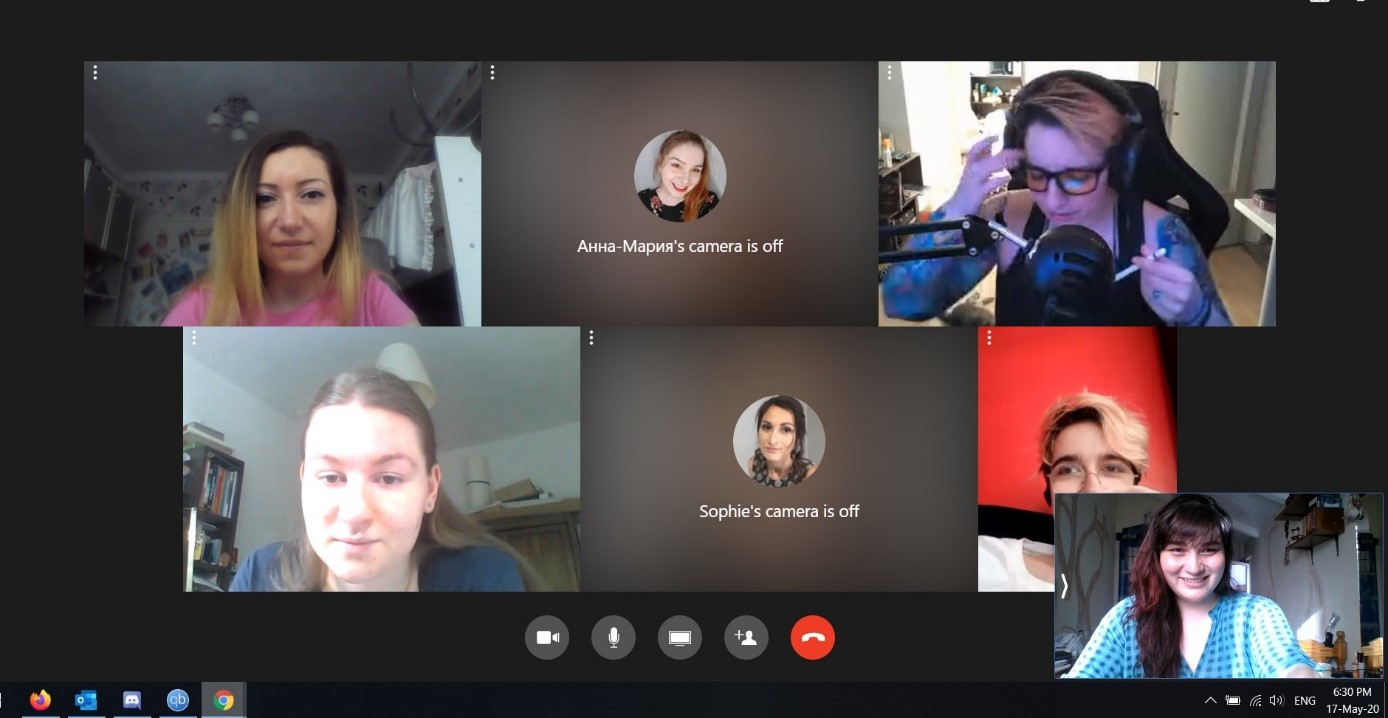Focus Group
Project “YOUth Ambassadors of Non-Formal Learning”
Country: Bulgaria
Facilitator: Raya Tsvetkova
Organisation: The Future Now Association
Date and Location: 17.05.2020 Messenger video call
Duration: 1.5h
Participants: 6, aged 19-27, who have participated in TFN activities
List of questions for Focus Group
- Do you think for NFE is important age, gender, nationality?
Age is important in terms of experience and cohesiveness of the group. Groups can benefit from a mix of age groups but only if it’s well-organized.
Gender is not important and doesn’t matter.
Nationality doesn’t matter, as long as participants can all speak the same language and understand each other. The language barrier would be the only problem to be tackled.
- What does NFE mean to you? Can you define?
– education that is not strictly framed;
– learning different things at different times for participants (not like in a class, which dictates time and subject);
– more freedom;
– learning from other people’s experiences – good practices but also from their mistakes; opportunity to see other people’s failed attempts but decide that in your environment the same thing could work better;
– just a way to connect.
- Have you ever been a participant in an NFE program? If yes – in which one?
Yes, all participants have been participants in NFE programs. GUIDE and United in Photography, which TFN is a partner in, as well as others, financed by Erasmus+.
- Do you know something about Youth Law / Strategy / Action Plan, as well as other documents related to youth?
The participants noted only that they know about the age restrictions, related to youth programmes, as they have been discussed more broadly (on TV as well). They have never stumbled upon these documents and have had no reason to look them up. One noted that they are mostly a consumer of their results and she understands that some opportunities she has had have been a result of such documents. Another ventured that they’re only documents (bureaucracy) and don’t have any practical reflection in the world.
- Have you ever participated in the youth decision-making process? If yes, in which one?
Aside from participation in student councils, no. They also didn’t know how they could if they wanted to. They also noted that they don’t want to be directly involved.
- Do you think that more support from the Government is needed to improve the status of young people and in the NFE sphere? If yes, what are the benefits of this, and what are the disadvantages?
Yes, the government should popularize NFE. Create more visibility, more awareness, because if you’re not specifically looking for opportunities, it’s not that prevalent.
One participant suggested that teachers in schools could be empowered to encourage students to participate.
Also a suggestion for the government to support NFE is to ensure the environment for NFE exists – youth centers, events, festivals, demonstrations (like there are for foreign universities, for example). Providing material support could be very valuable.
- Does NFE activities help you for your personal development. If yes, how? If not, why?
All participants said yes and added:
– in relaxing in front of new people;
– improving self-esteem;
– improving public speaking skills;
– improving social skills (talking to new people, forming opinions in cohesive ways and sharing them);
– realizing past mistakes based on what others share;
– realizing issues that exist in other nationalities but are rarely discussed publicly;
– gaining new skills;
– forming new friendships.
- For you, why is it important to be involved in activities through non-formal education?
– Traveling opportunities;
– Meeting interesting and new people;
– Developing social skills (and public speaking skills);
– Exchange of experience;
– Engaging with a variety of people (outside of the ‘bubble’ we create around us);
– Change of pace and point of view.







